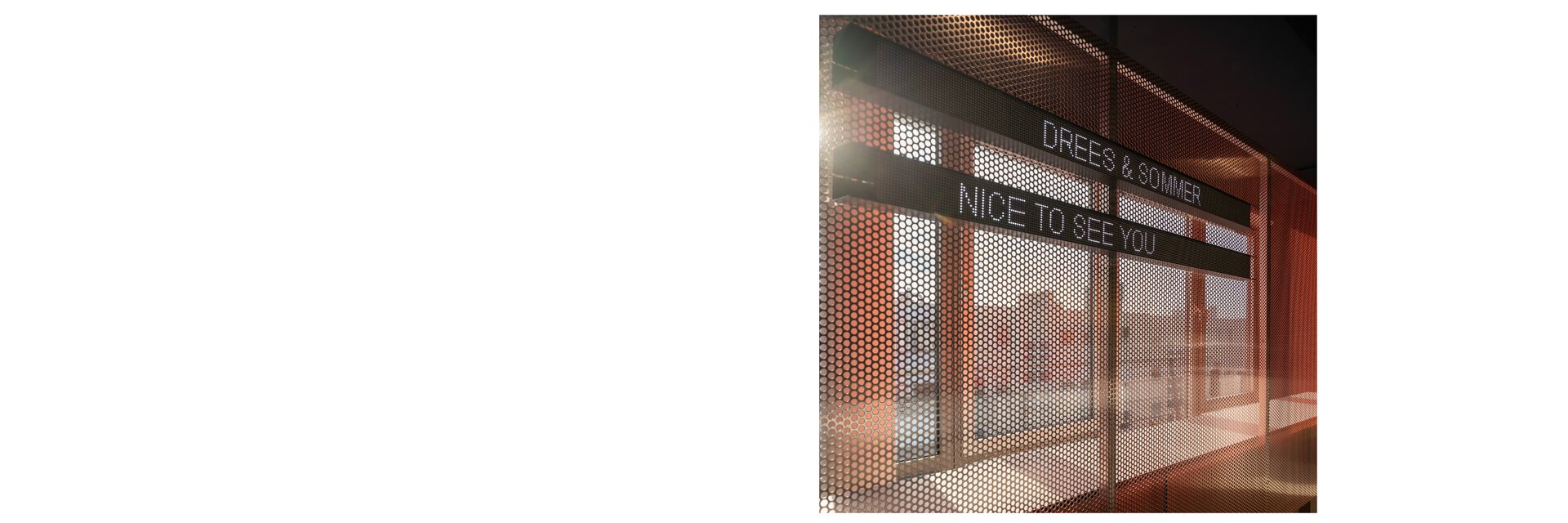Whoever reflects on new working environments today will have to abandon the traditional logic of linear thinking. Instead, they will place people and their needs at the core of their considerations. And discover that in the interplay between home office, third places and workation, between digital, hybrid and analogue formats, the office has gained new significance. It is evolving into a social anchor, a place of community, of exchange, of casual encounters: collaboration instead of competition. The KIRIOR team from the »New Work. Usercentric Consulting & Design« division at Drees & Sommer has taken their own premises as an example and created a vivid showcase that has proven itself in everyday work as a walk-in source of inspiration.
»It is time to break up divisions,« says Alexander Strub, creative director, »not only between different disciplines, cultures or hierarchies, but also between life and work. Spaces can foster – or hinder – these developments.« Anette Dittel »Spaces can manifest attitude, says concept designer Anette Dittel. True to her principle of user-orientation, she develops strategies and concepts and maximizes their feasibility with intelligent planning.« Alexander Strub Alexander Strub doesn’t care about boundaries. The multi-award-winning architect, designer and creative director is passionate about spatial communication, developing sustainability and creative concepts and translating brands into spatial experiences. 72 73 And Anette Dittel, concept designer, adds: »A wide array of talents with manifold qualifications and identities come together under this roof. They gather in larger or smaller communities, inspire each other, exchange news, seek retreat, find open spaces for creative use or relaxation. And, of course, good coffee.« »In fact, every user needs a small town«, says Alexander Strub, »with countless possibilities from which everyone can choose according to their needs.«









